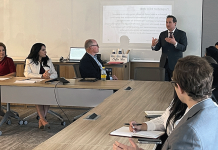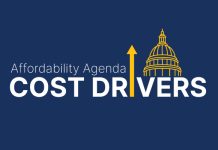A barn burner of a contest between Democrats Hillary Clinton and Bernie Sanders has generated a lot of national media interest in Tuesday’s California Primary Election. But whether you’re feeling the Bern, ready for Hillary or digging the Donald, there are a number of critical down ballot legislative races where CalChamber has been involved that will set the course of the legislature for the next decade.
This is the last election cycle to replace members elected under the old term limits law that limited service to six years in the Assembly and eight in the Senate. Over the past two election cycles, more than 80% of the Assembly is now comprised of members who are eligible to serve until 2024/2026. And the class of 2016 will be eligible to remain in office until 2028 so the short-term nature of politics has long-term implications for California’s business community.
Here are a few Election Day basics for those keeping score at home:
- There are 17 open Assembly districts; nine are Democratic and eight are Republican; and
- The Senate has nine open districts; seven are Democratic and two are Republican.
There has been more than $30 million of independent spending in some but not all of these races with multi-candidate fields. The heaviest spending has come from public employee unions, education reform advocates, trial attorneys and business groups like CalChamber. The major political parties have largely remained on the sidelines in June, but will play a much larger role in the fall when most of the contests will be conventional Republican vs. Democrat matchups.
Here is a quick glance at the open Democratic Assembly contests that have drawn the bulk of outside spending.
- Assembly Distrcit 4—Davis/Napa. This safe Democratic seat has seen more than $2 million in spending from the education reform coalition and the business community, including JobsPAC, on behalf of Cecilia Aguiar-Curry, the Democratic Mayor of Winters. This is a multi-candidate field, but most of the union spending has been for Davis Mayor Dan Wolk with more than $300,000 to oppose his candidacy from the pro-Aguiar-Curry forces.
- Assembly District 14—Concord/Vallejo. This East Bay district has seen heavy spending both for and against Democratic Concord City Councilman Tim Grayson. Education reformers have spent more than $1.5 million to boost his candidacy while spending close to $400,000 to oppose the candidacy of the other leading Democrat, Mae Torlakson. Grayson is feeling the heat from a labor coalition including the California Teachers Association who’ve spent close to $400,000 to oppose his candidacy.
- Assembly District 24—San Mateo/Sunnyvale. Home to Stanford University, AD 24 has seen almost $1.3 million to support Palo Alto Councilman Marc Berman with the bulk of the funding coming from business groups and education reformers. This same coalition is opposed to attorney Vicki Veenker, having spent approximately $120,000 against her candidacy.
- Assembly District 27—San Jose. This district will likely draw the heaviest spending, pitting labor-backed San Jose City Councilman Ash Kalra against former councilmember and one-time mayoral candidate Madison Nguyen. Labor has stepped up to spend close to $500,000 for Kalra while the business side has spent approximately $1.3 million to boost Nguyen and more than $600,000 in opposition to Kalra.
Not all of the hotly contested races are in the Assembly as the Senate has seen its share of the action as well, especially in Senate District 3.
Senate District 3—Yolo/Solano/Napa Counties. Assemblyman Bill Dodd (D-Napa), after serving one term representing Assembly District 4, has stepped up to run for this vacant Senate seat. Dodd was the recipient of heavy spending by the business community in his first run for the legislature in 2014 and has received an even greater level of support this year, receiving more than $2.5 million from the education reform coalition and business groups including CalChamber. Dodd’s main Democratic opponent, former Assemblywoman Mariko Yamada, is being backed by unions representing teachers and nurses.
These five races give you just a snapshot of the level of spending happening in other races, including some where the progressive left is supporting candidates against popular business-friendly Democratic incumbents. The estimates for total outside—meaning noncandidate- controlled spending—will exceed $30 million for June alone, breaking all previous records.




